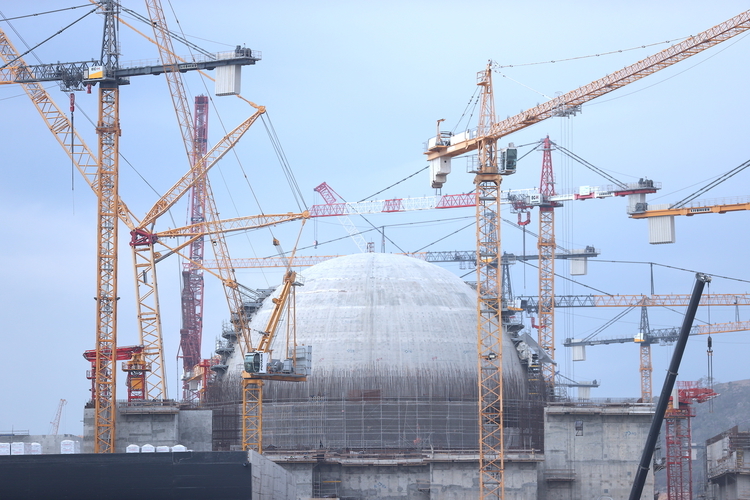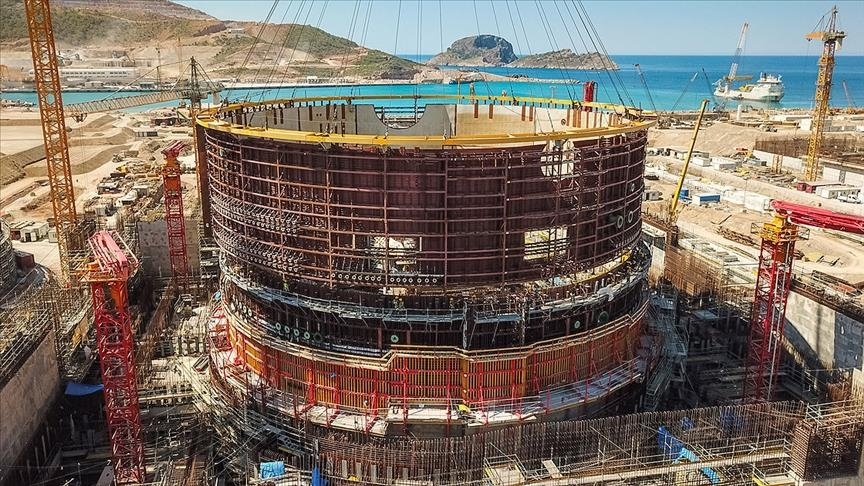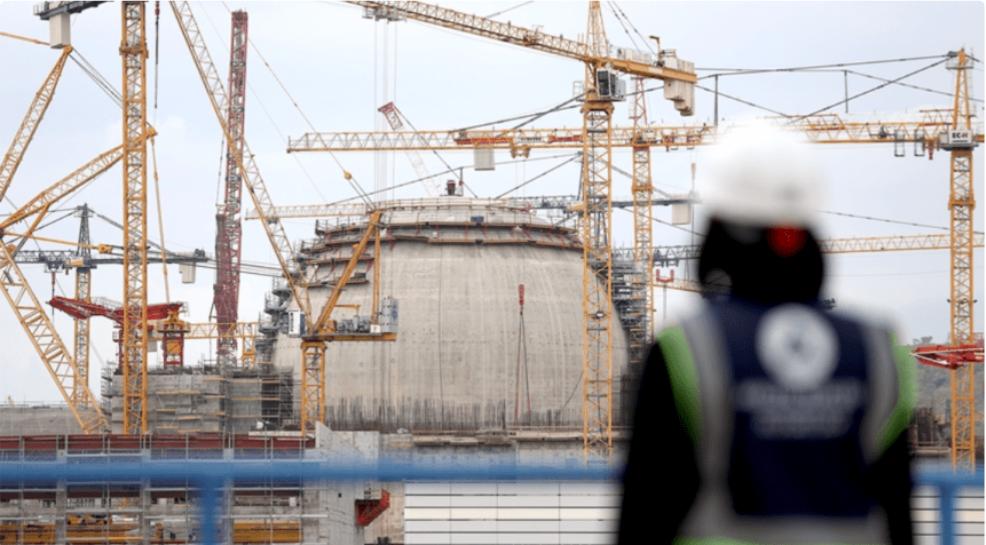Siemens Energy secures export approvals for Akkuyu Nuclear Plant parts
 The installation of the outer protective shell of the reactor building of the 1st power unit of the Akkuyu Nuclear Power Plant (NPP), built by the Russian State Nuclear Energy Corporation Rosatom, has been completed on Nov 11, 2025 (AA Photo)
The installation of the outer protective shell of the reactor building of the 1st power unit of the Akkuyu Nuclear Power Plant (NPP), built by the Russian State Nuclear Energy Corporation Rosatom, has been completed on Nov 11, 2025 (AA Photo)
Siemens Energy CEO Christian Bruch announced that the export approvals for delayed components and service-related materials related to Türkiye’s Akkuyu Nuclear Power Plant have been granted, signaling progress in a project that faced delays due to delivery issues related to the German government.
Siemens Energy blamed German government for delays
Siemens Energy recently acknowledged the delay but pointed to export controls imposed by the German government.
“We have complied with export rules, but for nearly a year, we have been unable to deliver certain components for the Akkuyu project because of a lack of export and customs clearance,” a Siemens spokesperson told DW Turkish.
The company recently underscored that it had delivered some equipment earlier and is waiting for approval on further shipments. Following Russia’s invasion of Ukraine, Germany imposed stricter regulations on exports linked to Russian entities, affecting many sectors, including energy.
Siemens refrained from commenting on the specific equipment withheld or the reasons behind the export license denials.




Delays prompt use of alternative suppliers
Energy Minister Alparslan Bayraktar previously stated on September 11 that the construction of the Akkuyu Nuclear Plant was delayed because Siemens Energy had not delivered crucial transmission equipment.
Minister Bayraktar recently mentioned that they see nuclear energy as part of a better future and said, “Therefore, we emphasize that all barriers, such as trade and financial restrictions and sanctions against the sector, must be removed. These barriers not only slow down technological progress and economic development but also delay our ability to achieve global sustainability goals.”
“It is essential that international policies support rather than hinder, the responsible development and deployment of nuclear energy,” he added.
As a result, components manufactured in China were chosen as replacements. The plant, which will feature four reactors each with a capacity of 1,200 MW, is expected to have its first reactor operational by 2025, with full completion slated for 2028.




Impact on Türkiye’s energy sector
The Akkuyu facility is projected to account for around 10% of Türkiye’s energy production once fully operational. However, integrating the plant into the national grid will require capacity enhancements in the transmission system.
Minister Bayraktar noted that the construction of all four reactors is progressing simultaneously, with the first reactor’s construction reported to be 90% complete.

Progress at Akkuyu NPP
Despite the setbacks, construction at Akkuyu has progressed. Notable achievements in 2023 include:
- 2013: Construction of the plant began.
- 2018: Significant acceleration in construction efforts.
- 2023: Nuclear fuel loaded into the first power unit, with a planned startup in late 2023.
- Turbine foundation completed: For the third reactor, advanced technology was used to lay the foundation of the turbine system.
- Concrete pouring: A total of 2,220 cubic meters of high-strength concrete was used, and the structure was designed to withstand heavy loads.
- Technological milestones: The turbine system is designed to convert steam into mechanical energy, facilitating electricity production.
Akkuyu plant plays a critical role in Türkiye’s energy strategy. However, the delays and shifting international dynamics illustrate the vulnerability of large-scale energy projects to external political forces.
During German Chancellor Olaf Scholz‘s recent visit to Türkiye, it was widely believed that the Akkuyu NPP was also discussed on the sidelines of the meeting.



